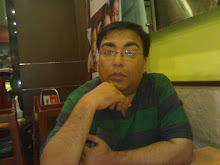 The other day I landed at the Indraprastha Apollo Hospitals, a stone’s throw away from my residence in New Delhi. My wife needed a test and our doctor at Max Healthcare asked us to get it done at Apollo as the equipment at Max was out of order. The moment I walked in I felt as if I was on a railway platform. The hospital was full of patients as everybody appeared to be in a mad rush. In the OPD area, the ladies at the reception were busy, chatting amongst themselves, while patients and their caregivers waited for their attention. They wore no uniforms and for some strange reason, they were also collecting cash from the patients (apparently for the doctor’s consulting charges) and handing out receipts scribbled on small chits, which did not even have the hospital’s name on it.
The other day I landed at the Indraprastha Apollo Hospitals, a stone’s throw away from my residence in New Delhi. My wife needed a test and our doctor at Max Healthcare asked us to get it done at Apollo as the equipment at Max was out of order. The moment I walked in I felt as if I was on a railway platform. The hospital was full of patients as everybody appeared to be in a mad rush. In the OPD area, the ladies at the reception were busy, chatting amongst themselves, while patients and their caregivers waited for their attention. They wore no uniforms and for some strange reason, they were also collecting cash from the patients (apparently for the doctor’s consulting charges) and handing out receipts scribbled on small chits, which did not even have the hospital’s name on it.
Strangely, I was than directed to a cash counter to pay for the tests.
Since my wife needed some injections we were asked to go to the pharmacy and buy them, bring them back to the treatment room in the OPD area, where a nurse would help us with the shots. As we wound our way back to the Pharmacy we discovered that buying medicines is a huge chore. We submitted our prescription at a counter in the pharmacy and were handed over tokens and asked to wait. There was no place where one could even stand, without being pushed around. After being jostled around for 30 mins, we managed to buy the medicines, only to discover that we also needed to buy the disposable syringes, which the doctor had forgotten to mention on the prescription. So lo and behold the charade of the tokens was repeated.
During all this I counted 18 people inside the pharmacy store and the two guys who handed me the medicines and accepted my cash kept chatting with each other in a south Indian tongue, without bothering to pay any attention to me whatsoever.
We returned to the OPD and were directed to room no. 15 for the shots. This room was locked and we were than directed to a paediatric immunisation room full of anxious parents and bawling kids. This is where my wife managed to get the shots she needed. We wasted more than an hour in all this and ran around the hospital OPD trying to get some very basic services. The staff was uniformly disinterested in us, poorly trained and too busy to attend to us. Fortunately, the test my wife needed was routine and she is in good health. I can just about imagine the plight of patients and their care givers flocking to this hospital and being shunted around by a callous system, which barely works.
And now here is what happened when I came to collect her reports two days later.
I called up the hospital to check if the reports were ready. On being informed that I could collect these by 8 PM, I agreed to stop by to pick these up. As I walked in at about quarter to 8 in the evening I discovered a security guard merrily locking up the report collection area. He directed me to take another door into the radiology reception and 5 minutes later, when I walked in I found the lights switched off, the guard had also disappeared and there was not a soul to be found. Perplexed, I walked into another adjacent room and found someone busy on the phone.
As I explained my predicament, this gentleman informed that I was late and that the staff usually left 15-20 minutes earlier than closing time! Amazed and incensed at all this I asked to be directed to someone, whom I could lodge a complaint with. Much to my disbelief I was told to approach the Emergency Medical Officer in the Emergency!
At the reception in the Emergency, I found myself explaining my situation to a young man, who was simultaneously trying to answer questions from an anxious gentleman, whose father had just been brought in with severe chest pain!!! The emergency medical officer, who was supposed to record my complaint was predictably busy with a patient and I was asked to wait. After about 30 minutes of watching the bedlam of a busy Emergency room with no one paying me the slightest attention, I raised my voice (and in the process added to the chaos) and demanded to see the highest ranking hospital official to record my complaint.
I was than informed that the Night Duty Manager will now attend to me soon. Another wait of about 15 minutes followed and yet no one showed up. I again screamed at someone and in another 10 mins a nurse walked out looking for me. She understood my problem, asked me to wait and went to fetch my reports. She returned in a while with my reports and gently admonished me for being so late and irresponsible in collecting my documents.
This is a true story of Delhi’s only JCI accredited hospital. God help us all!!!
 A recent cover story in Business World highlights the growing influence of Single Speciality Hospitals (SSH) in India. I read the story carefully. First and foremost, I was delighted to see a cover on healthcare in Business World. It is not often that the business of healthcare gets prominence in a widely circulated and highly respected business weekly. That, BW decided to do this story is a testimony to the growing importance of the private healthcare sector, which is something to cheer about.
A recent cover story in Business World highlights the growing influence of Single Speciality Hospitals (SSH) in India. I read the story carefully. First and foremost, I was delighted to see a cover on healthcare in Business World. It is not often that the business of healthcare gets prominence in a widely circulated and highly respected business weekly. That, BW decided to do this story is a testimony to the growing importance of the private healthcare sector, which is something to cheer about.